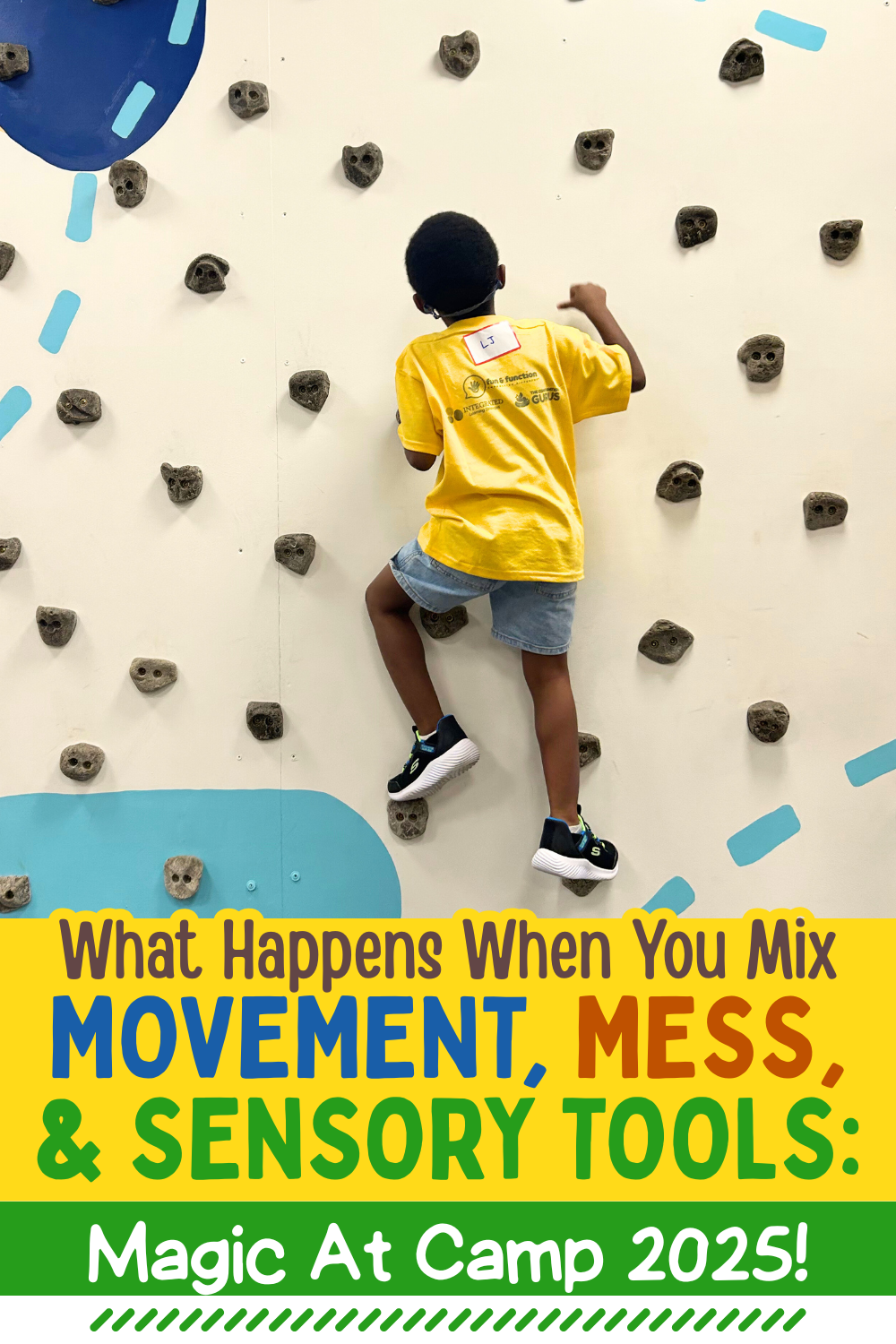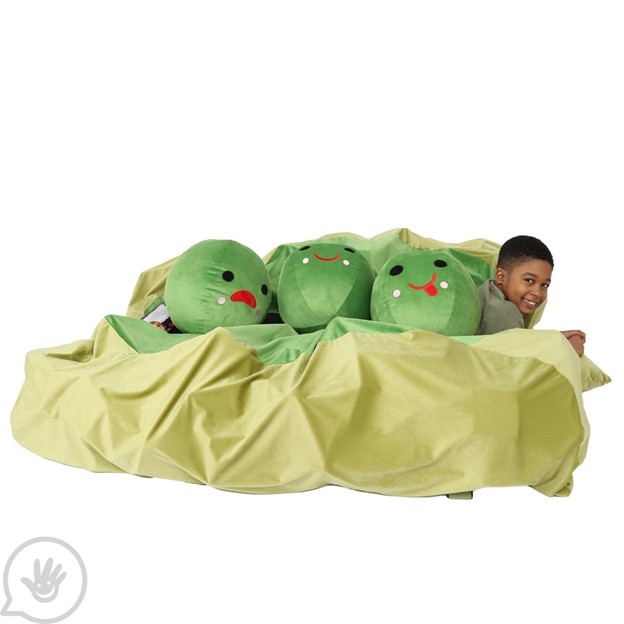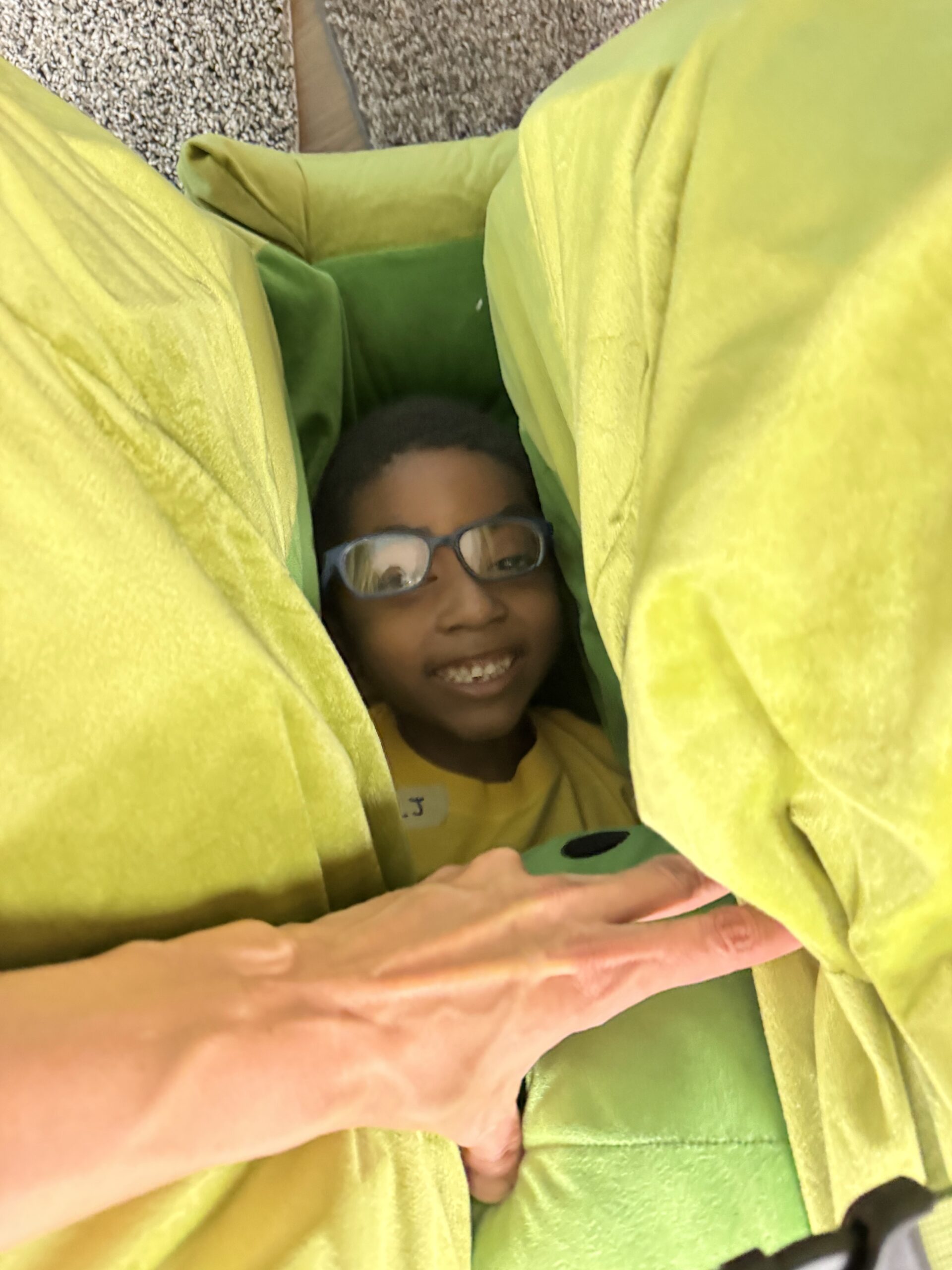Last year a 20 year dream came to reality, running a one-week intensive therapeutic camp for kids with sensory, executive functioning, and retained reflex needs. (See the 2024 recap here!)
We just finished year 2 of the Trailblazers Sensory Summer Camp in Pittsburgh!
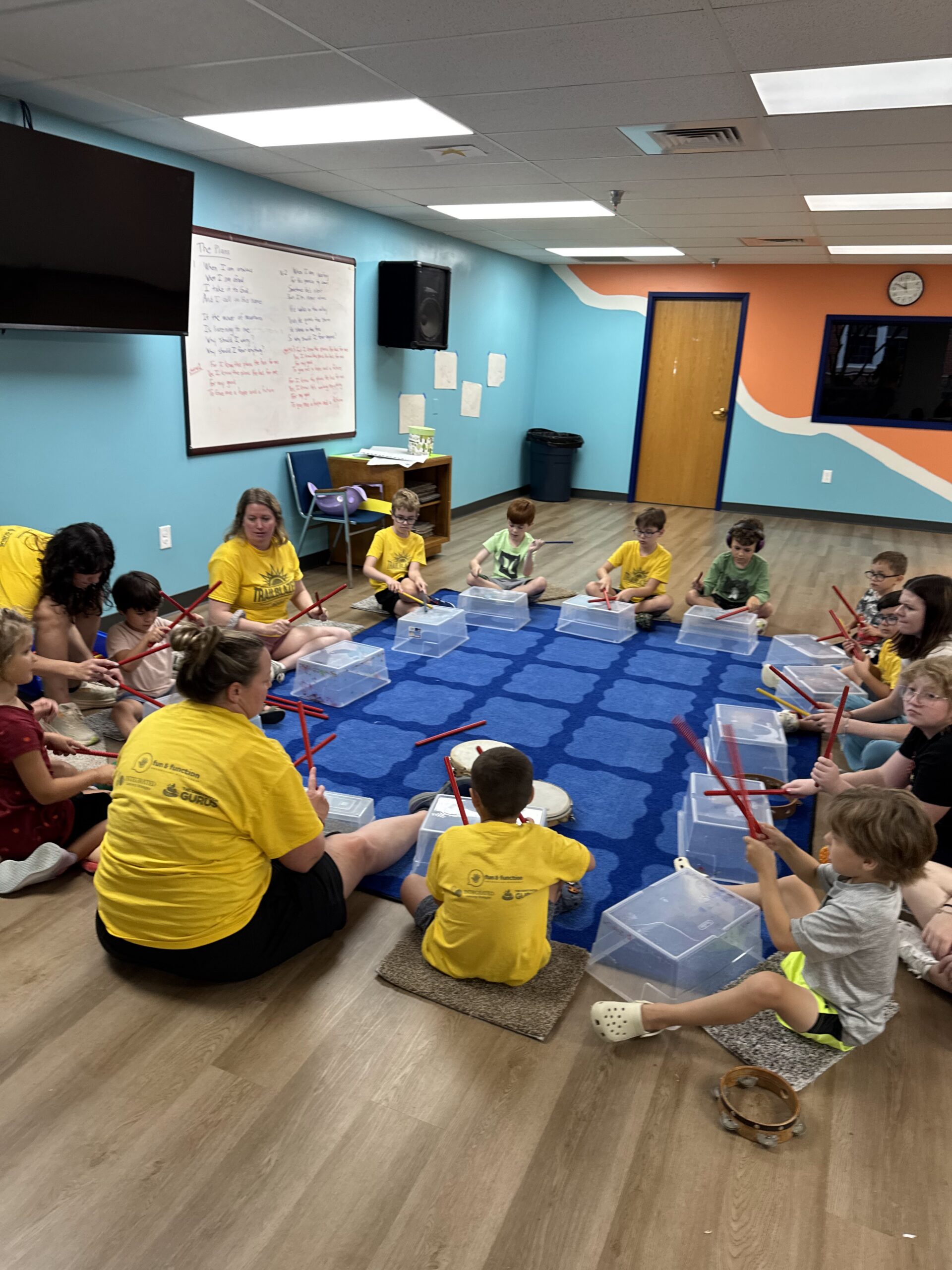
The vision is creating a fun camp space for kids, some of whom have no diagnosis, some with ADHD, Autism, or anxiety-with 20 hours of targeted therapeutic activities.
As therapists we rarely get to spend that much time working on these skills at one time.
At the end of the week, many moments of growth stand out, like improved coordination, massive picky eating wins, and big picture successes like increased social skills.
This was only possible because of the incredible team we had:
- 3 expert OTs (The one time a year our YKT team gets together in person)
- 4 incredible occupational therapy students and 1 speech language pathologist for support
- 14 incredible kids ready to spend 5 packed days of skilled therapy and fun
- 3 sponsors who made the logistics, planning, and execution possible
A huge shout out and thanks to our incredible sponsors:
Fun and Function – continues to be a leader in the sensory space, creating innovative tools that are both therapeutic and engaging for kids. Their commitment to designing products that support regulation, attention, and emotional well-being made them a natural fit for our camp.
As a long-time trusted resource for our team and the families we work with, their support helped bring our vision for camp to life—from planning to play. We’re incredibly thankful for their partnership, for the second year in a row.
Constipation Gurus – is changing the game when it comes to helping kids with chronic constipation, toileting issues, and digestive discomfort; challenges that often go hand-in-hand with sensory processing difficulties.
Their science-based, gut-focused approach is making a real impact for families and therapists alike. We’re grateful for their support in helping us run a camp where we could care for the whole child-including often-overlooked underlying challenges like gut health and body awareness.
Integrated Learning Strategies (ILS) – is a leading voice in the holistic, brain-body approach we aim to emulate at camp.
Their commitment to helping children thrive through movement, reflex integration, and multisensory learning is deeply aligned with our work as occupational therapists. ILS’s research-backed strategies are a trusted resource for both our team and the families we support, and we were honored to have them as a sponsor this summer.
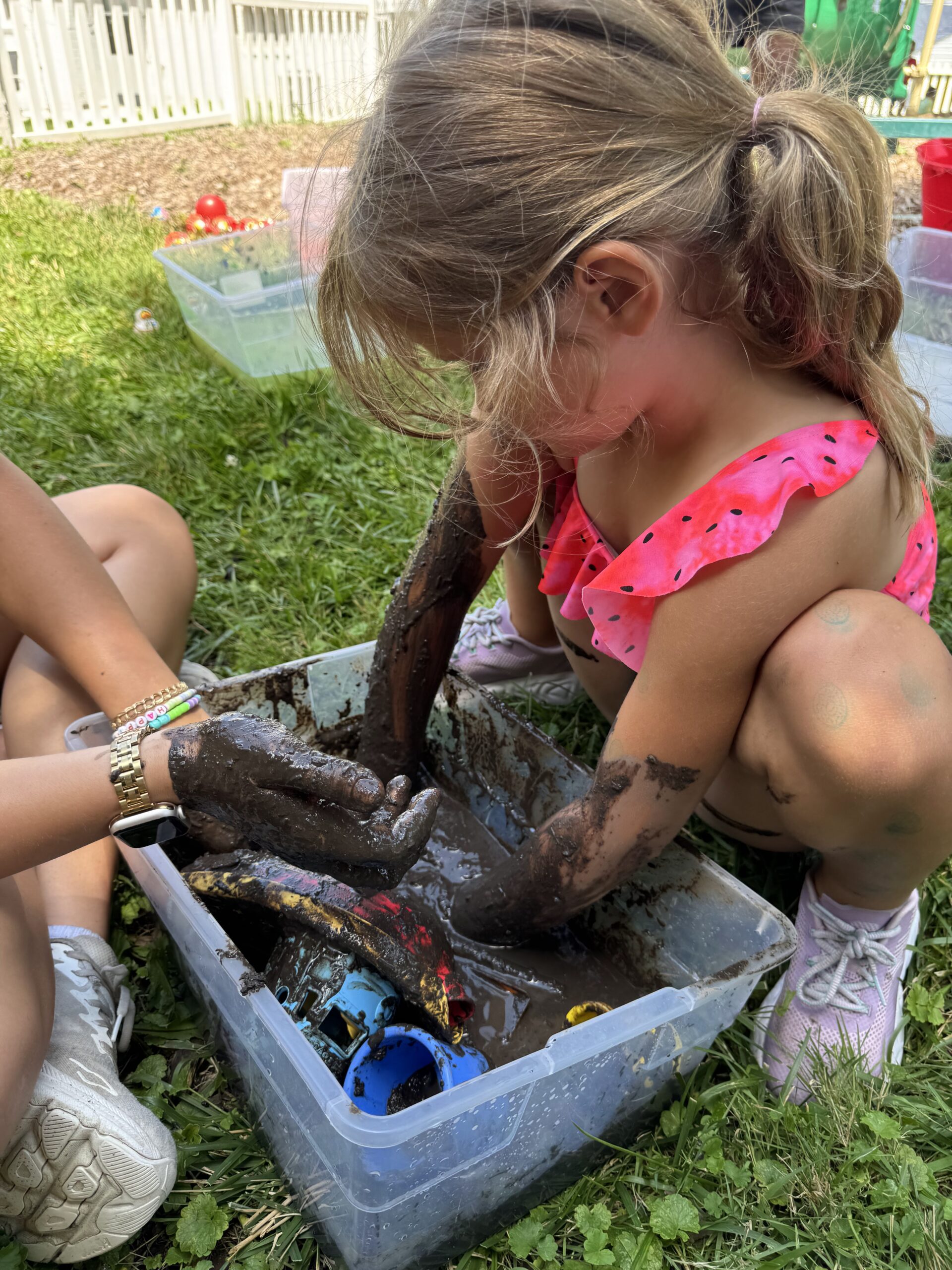
Real Change: From Freaking out to Exploring
Believe it or not, many of the movements, obstacle courses, and even the daily drum circle can help a kid with picky eating, because everything is connected in the brain. Improving regulation and motor skills can help.
Since many of the kids at camp are “picky eaters” we wanted to target getting comfortable with more foods.
We lean hard into Ellyn Satter’s Division of Responsibility and don’t pressure. We wanted to get kids having positive experiences with foods AND meet them where they were.
In addition to daily food exposure at lunch (aka having peas, shredded carrots, or some fruit in a ramekin next to their lunch), we had a “Food Art” activity 3 times throughout the week.
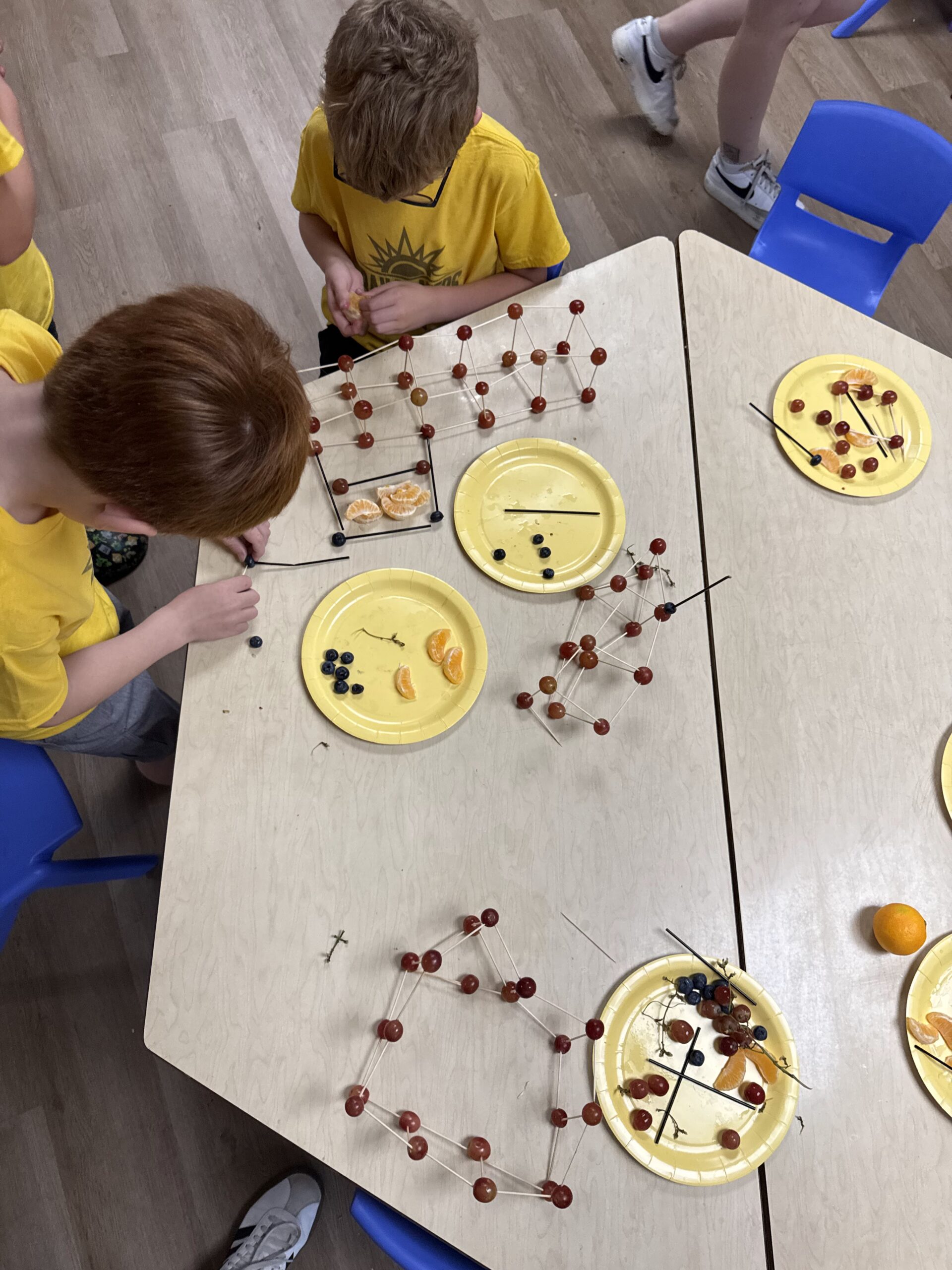
On day one, the kids made rice cake faces. They had a scoop of hummus on their plate, a rice cake, shredded carrots, almonds, and cut cucumbers to make a face.
When we put a scoop of hummus on this kids plate, one camper darted from the table as he yelled, “I’m not going near that.”
A clear sign of food aversions and that he thought we were going to pressure him to eat it.
There was visible relief in his face and posture when I told him “Nobody at this camp will make you touch or eat anything. It’s your choice.”
He came back to the table.
By the final day, he sat calmly making “apple donuts,” spreading peanut butter, sprinkling shredded coconut, and smashing freeze dried raspberries-ingredients he typically avoided.
No protests. No stress. Just messy, joyful exploration. He was so proud and asked me to take this picture:
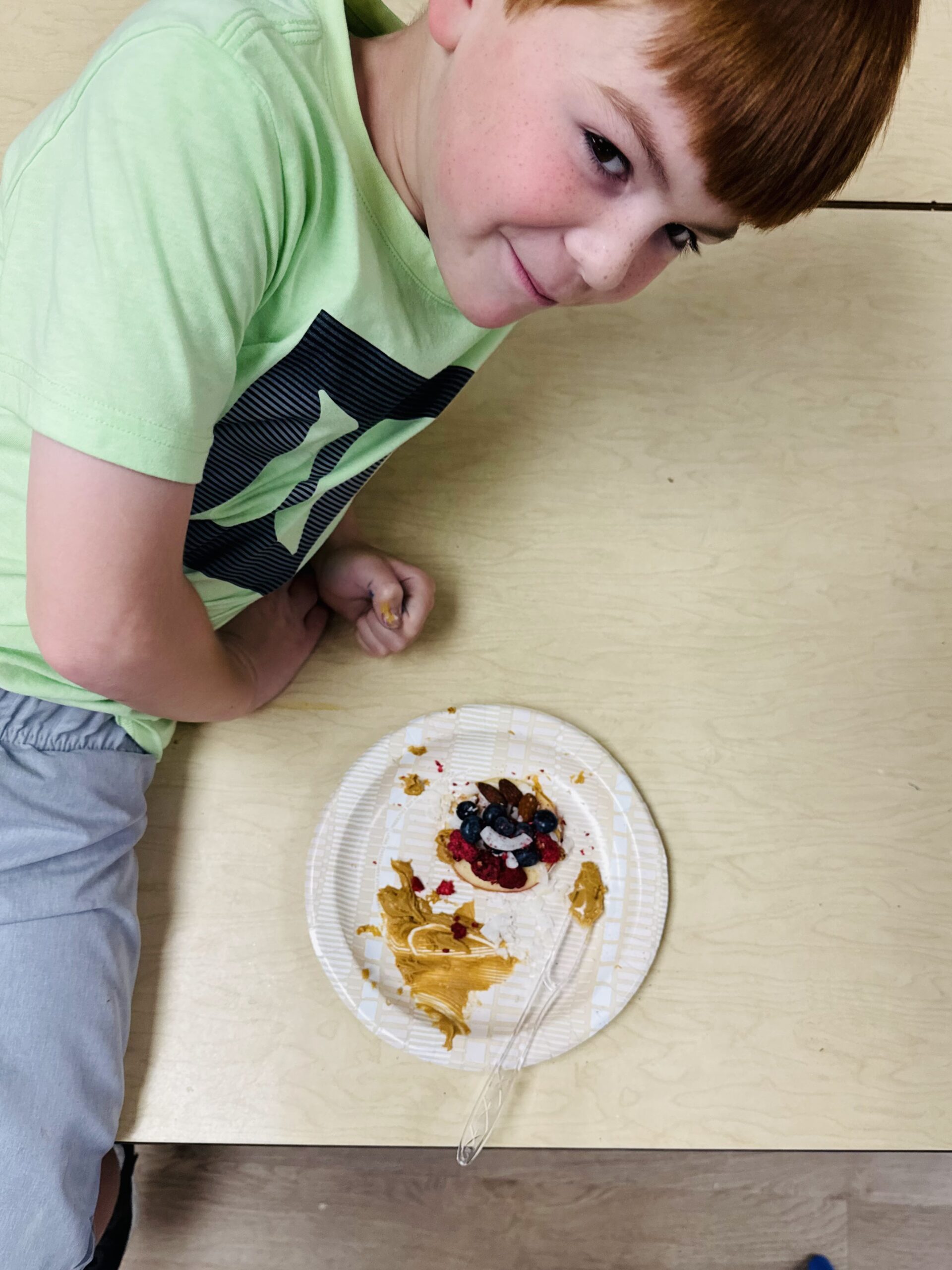
Without a doubt one of the highlights of our week!
I know as a parent of a former picky eater, it may seem like the gap between being comfortable touching and interacting with food and eating new foods is huge- maybe even insurmountable.
But I’m here to tell you that a child making new brain connections regarding the sensory processing related to eating, as well as taking the mental leap from “Never, ever” to “This isn’t so scary…maybe one day” is often closer than you think.
For this kiddo, the no-pressure environment, coupled with fun and the group environment was pure magic for opening him up to the possibility of a more confident relationship with food.
The daily reminder: “Nobody here will make you eat or touch any food” became a mantra for us, every time food came out and that allowed him to take small challenges toward exposure each day.
And, we saw similar progress with so many of the other campers with food too!
If you want picky eating help too, our best free resource is the 3 Keys to Turn Around Picky Eating workshop, all these strategies were leveraged at camp!
Obstacle Courses, Regulation, and a Pea Named “Greenace”
As a pediatric occupational therapist, I am a self-proclaimed toy expert, and I know that strategic use of toys and sensory equipment (which should look like a toy) can be a game changer for getting kids to engage with me during treatment and play.
Fun and Function generously donated an incredible sensory tool for camp: Peace in a PodⓇ
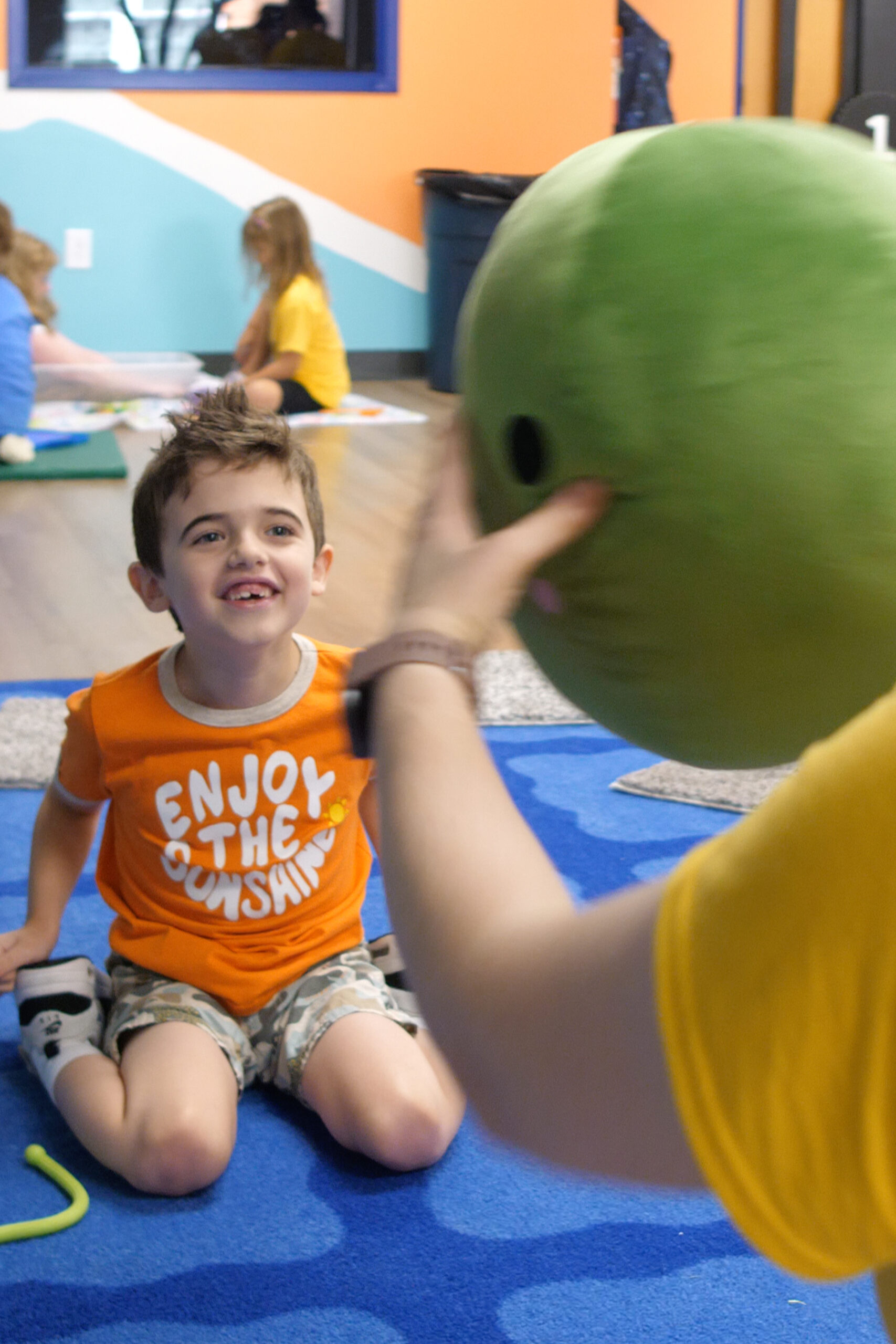
And it was a hands-down camp favorite, and not just by the sensory-seeking kids I expected to love the proprioceptive input.
This item was used as part of our daily obstacle courses as a crash pad, as well as a space for kids to climb into to reset with deep pressure when they needed a minute away from the group.
But the real stars of the show were the removable, weighted peas that fit inside. By the end of the week, the 7-8 year old boys affectionately named the smiling pea Greenace and carried him around like a friend throughout camp.
These peas were used for weighted catching games with even some of our youngest and highest-needs kids.
“Greenace” became an incredible motivator especially to one of our more resistant-to-engage campers.
He carried it around from station to station, not even realizing that the extra proprioception from its weight was an added layer to the comfort he found from it.
Here’s Greenace sporting a pom-pom headband that was a part of one day’s craft session. As you can see, he’s having a great time!
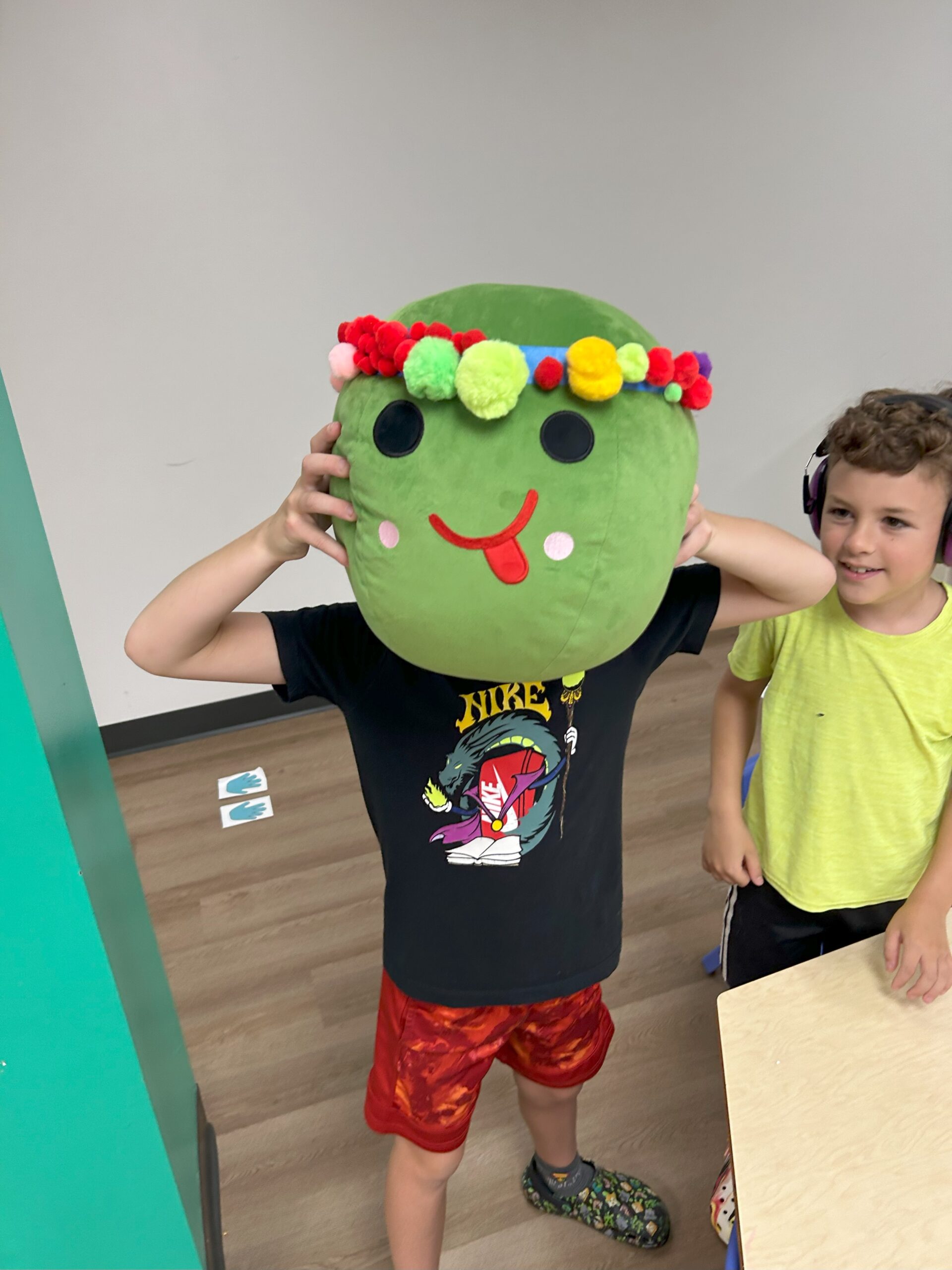
A sensory tool like Peace in a PodⓇ is so much more than just the fun and comfort it provided each of our campers this week.
It is an intentional tool that allows for a range of deeply therapeutic opportunities from meeting sensory needs (proprioception), emotional regulation, postural control, social interaction, and even integration of retained reflexes like ATNR and TLR.
We are so grateful for Fun and Function’s sponsorship at camp this summer, and the partnership we have formed with them in each of our specific areas of supporting our sensory kids.
I highly recommend the Peace in a PodⓇ from Fun and Function, you can snag your own here!
What’s Behind the Scenes: The Magic in the Mess
Each day of camp was built around movement-regulation-play cycles where strategic sensory and developmental strategies were woven into fun and activity in a way kids could tolerate and enjoy while being challenged in the “just right” way.
We did this through an engaging but predictable routine each day that we reviewed with everyone at the start of each day.
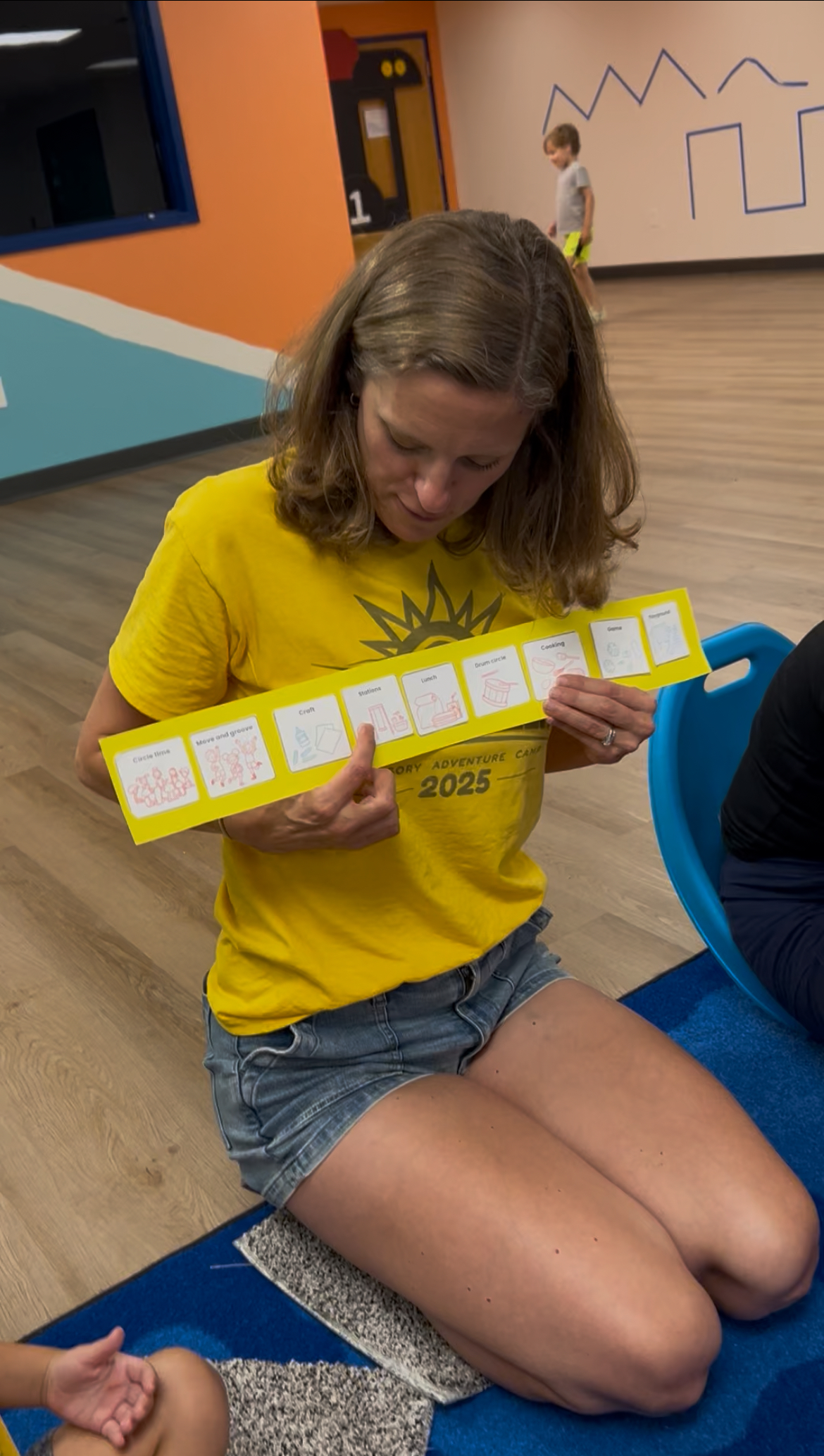
As a part of the daily routine we used: obstacle courses, sensory bins, messy art/play, drum circle, and the use of heavy work relays to target foundational components to the struggles of each child like retained primitive reflexes and sensory integration.
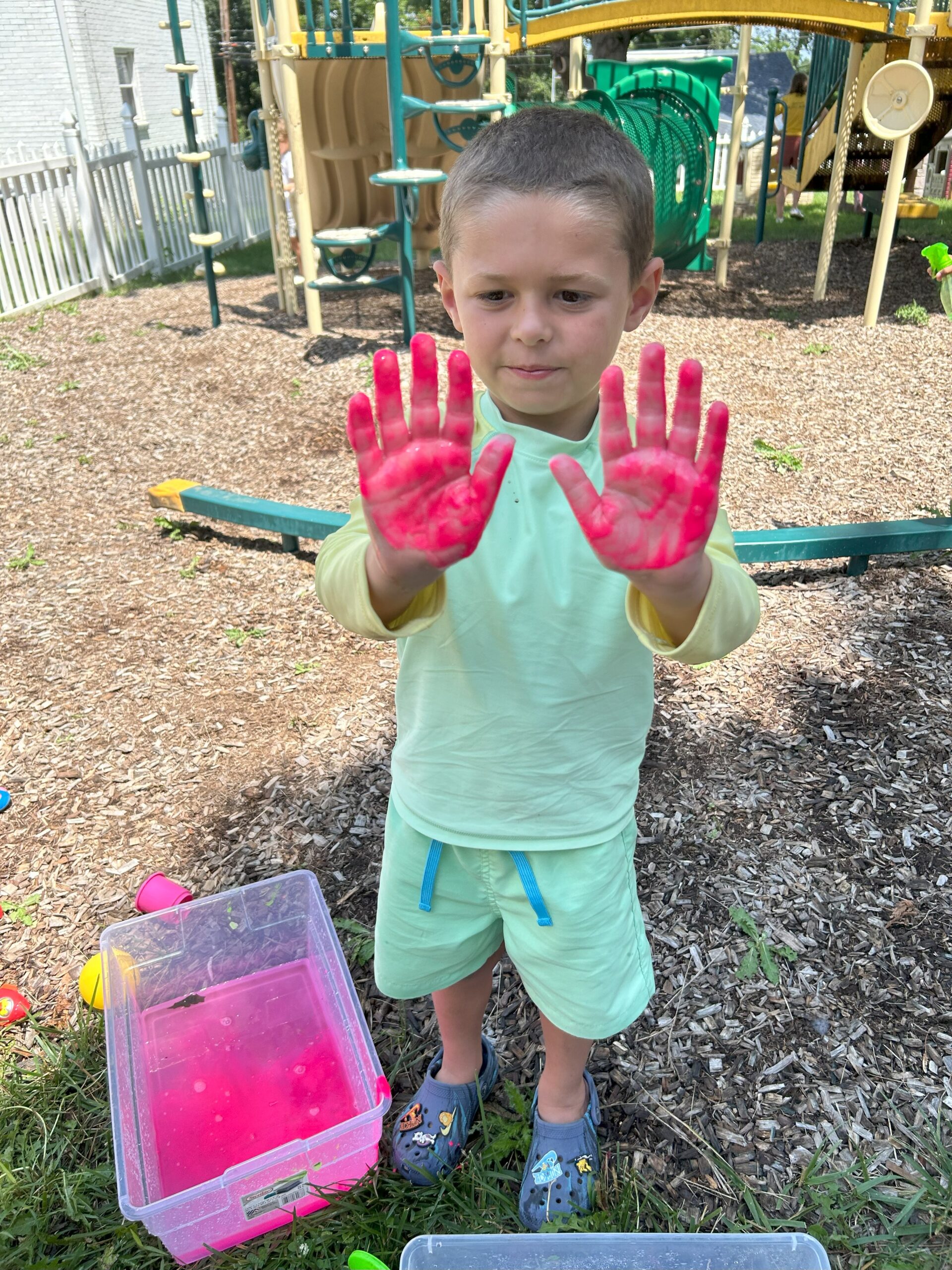
The awesome part of running it as OTs instead of typical camp counselors is that we were able to work with these kids on a repetitive basis within a short window, meaning what we saw on Monday was able to influence how we planned and adjusted the remainder of camp.
Everything built on itself to allow kids multiple opportunities to show us their difficult areas as well as solidify and practice strategies to improve these issues as the week progressed, and beyond!
For example, on day one of our obstacle course, MOST of the kids struggled with rolling across a mat.
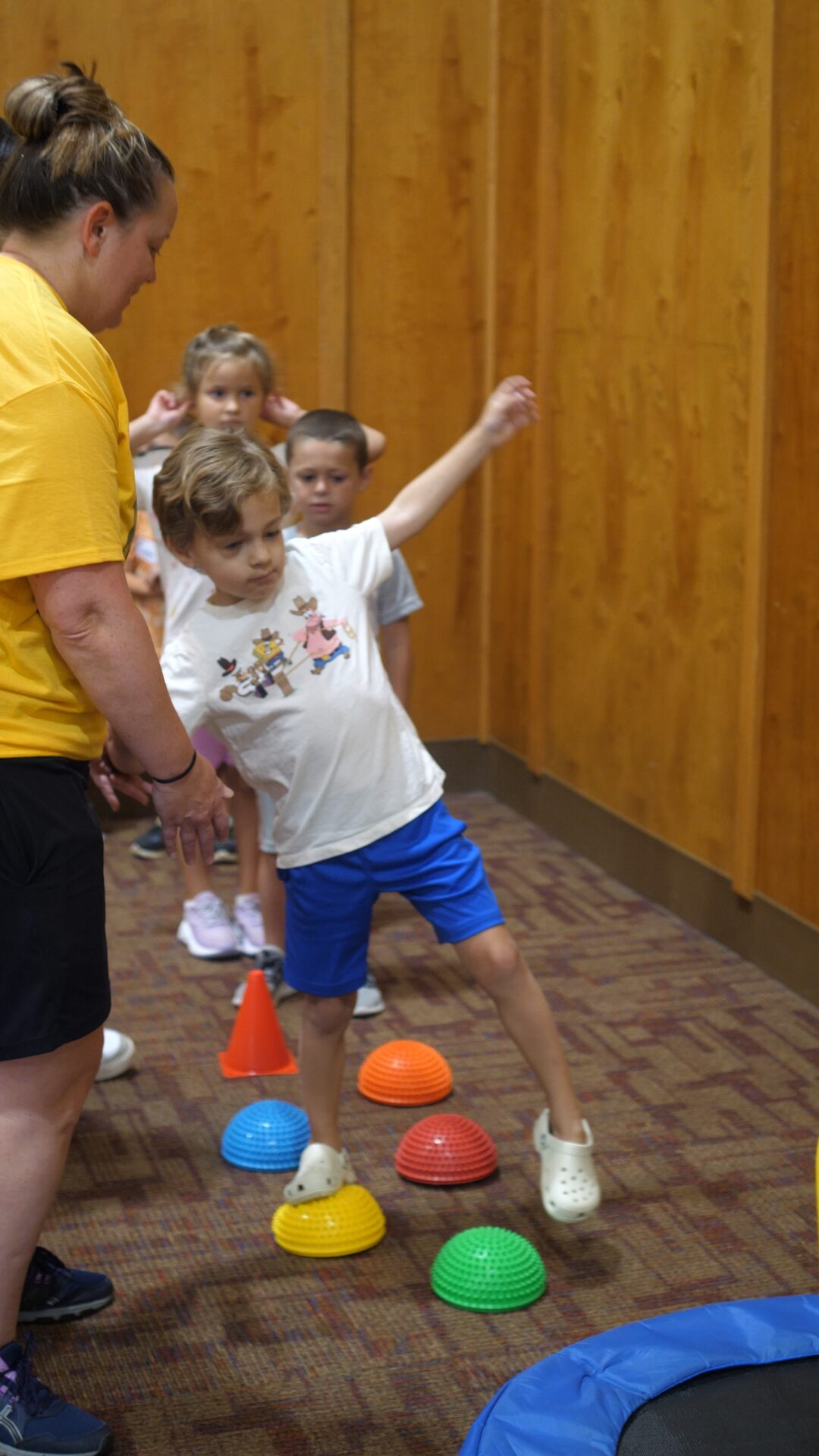
While rolling may seem like a simple staple of childhood play, there is quite a bit of brain and body connection needed to both plan the movement and execute it with the body as well as do it segmentally (with their whole body as one fluid movement).
Seeing this difficulty in kids led us to incorporate MORE primitive reflex integration activities into our other stations for the remainder of camp, specifically for those that interfere with rolling like the spinal galant reflex, tonic labyrinthine (TLR), and asymmetrical tonic neck reflex (ATNR).
By Friday our kids had massively improved their rolling skills, which will directly impact other skills like reading!
Hidden Challenges that Can Be Easy to Miss
For so many of our campers, their struggles are buried and somewhat camouflaged by the ways in which they can compensate or simply avoid difficult tasks.
On top of this, many are dealing with dysregulation and big emotions.
For example, many of the kids appeared athletic, strong, and seemingly coordinated, but when pressed to show us more involved movement patterns, like galloping or rolling, a huge challenge arose.
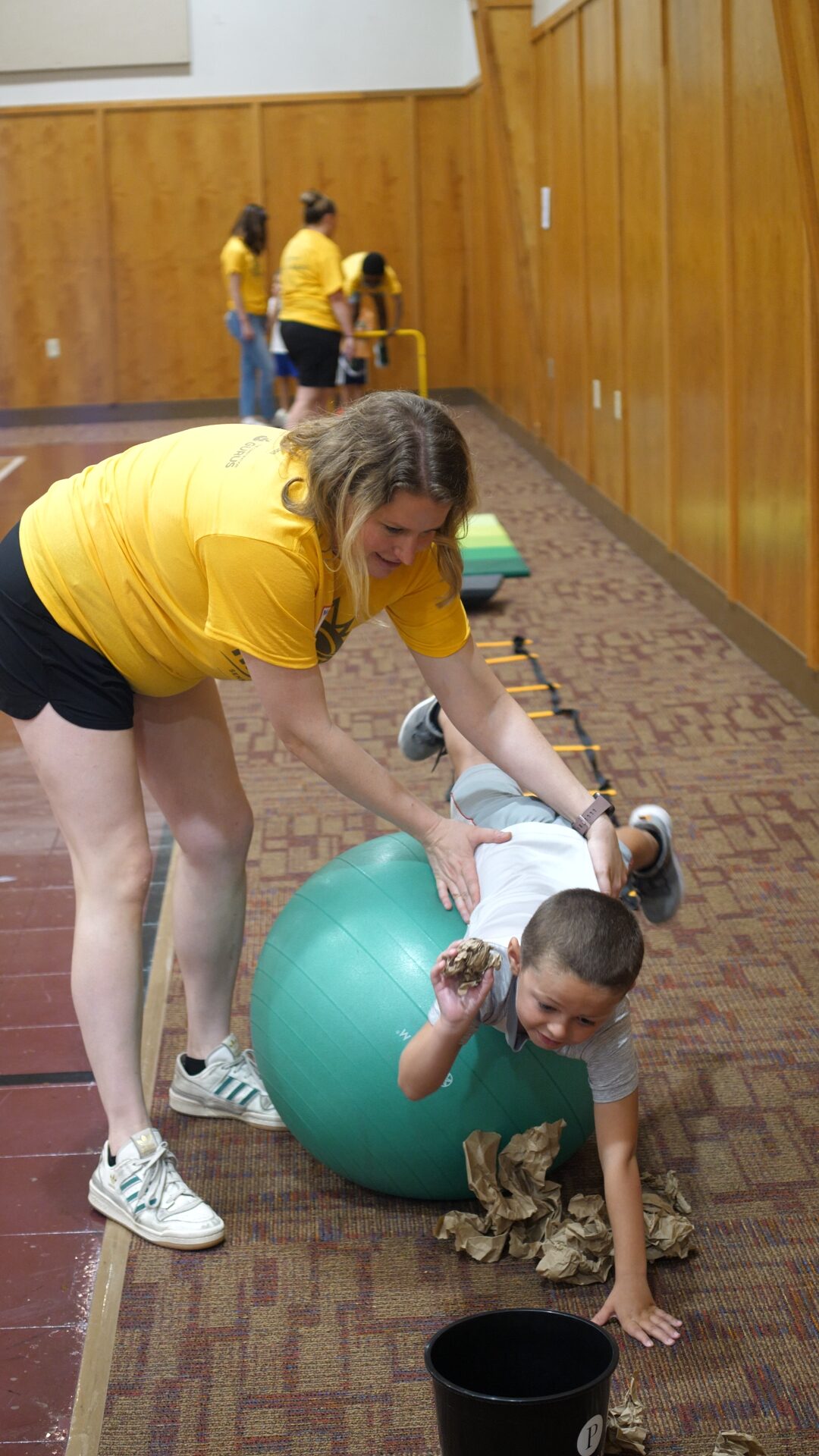
These are the kids who might fly under the radar for services,but these deep foundational issues often are the cause or at least a contributing factor to poor attention, reading, math skills, and even social skills!
This week was a powerful blend of:
- individualized support to meet each camper’s unique needs
- paired with sensory strategies we know benefit all kids
- a group experience that empowered and encouraged kids
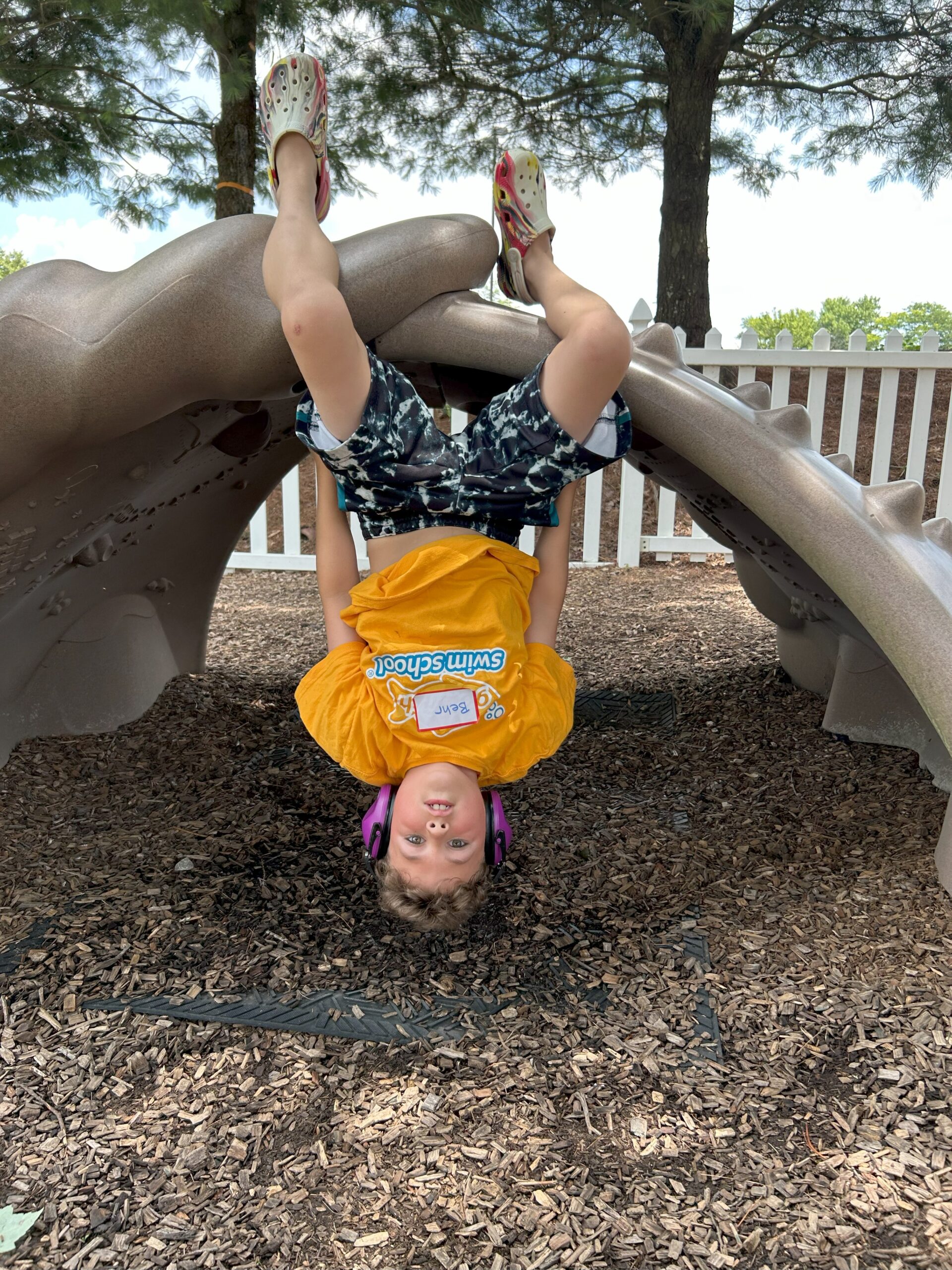
What the Kids and Parents Said
We could go on and on about how impactful camp felt from our perspective as OTs this year. It’s hard to explain how rewarding it is to see a child make strides in a short week of camp. And there was so much more than these small glimpses we shared.
But what matters is how the kids and families like you experience it too.
Several of our families travelled to Pittsburgh from hours away, staying in town for the week.
One who travelled in from 2 hours outside of the city said,
“It was worth it! He had so much fun at camp and already said he wants to come back next year. Thank you so much for everything!”
Another second year return camper’s mom said: (in response to a messy play craft- an area he struggles with and had goals to work on)
“My son said he loved this activity at camp! Definitely going to try it at home now. Thank you!”
These experiences and this feedback is why we do what we do. While we know these kids have made foundational improvements to skills that will last them a lifetime, the things they remember are the fun of it all and that is truly priceless!
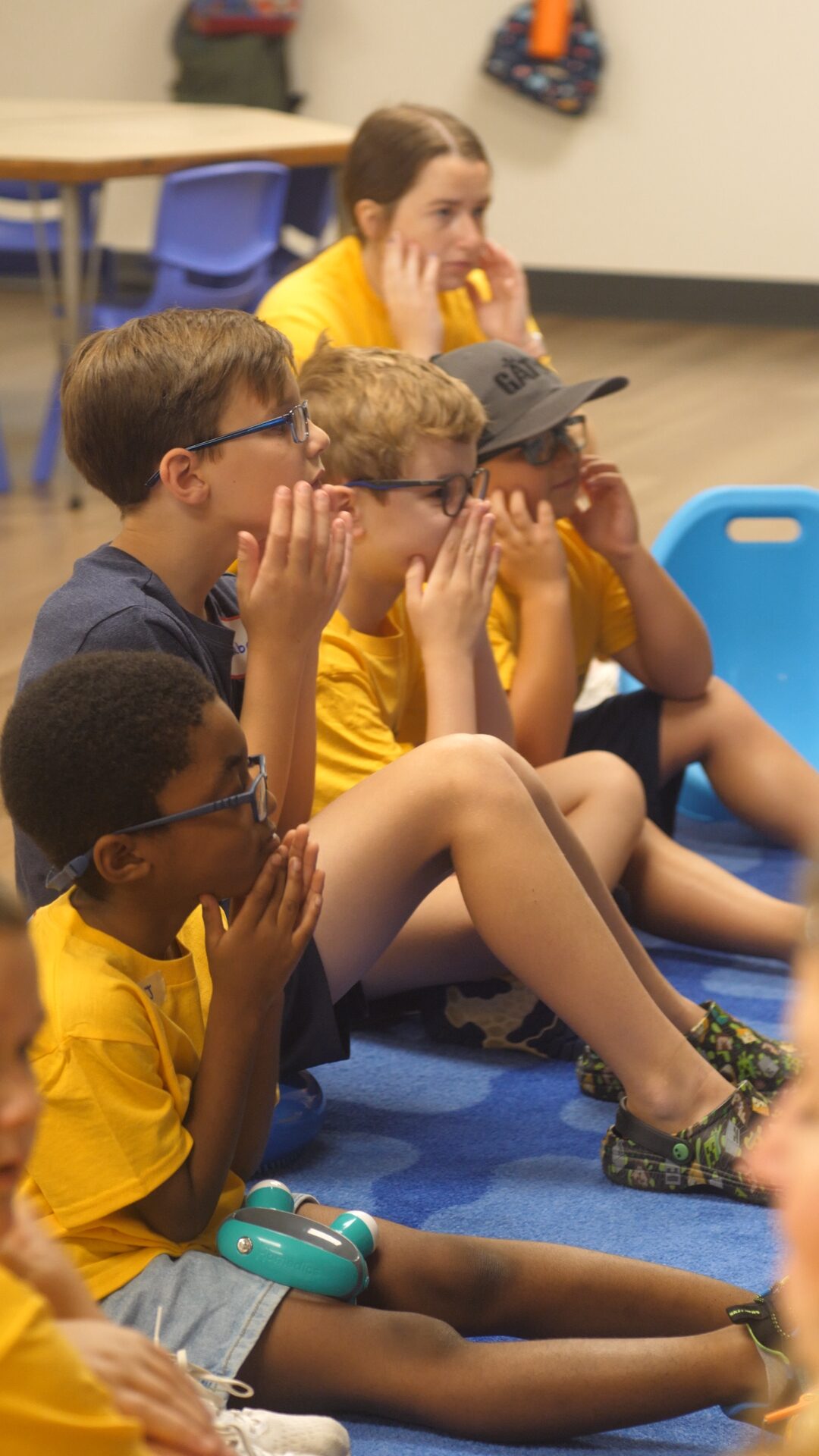
Gratitude + Looking Ahead
We have to say one final ‘thank you’ to sponsors. And, because of the amazing work each of them do for kids, go check them out. You’ll be so glad you did:
Integrated Learning Strategies
If you attended this year and want to come back or missed it and don’t want to miss next year’s opportunity, get on the waitlist here for Trailblazer sensory adventure camp 2026.
There are A LOT of moving parts when it comes to planning and executing camp, and many that do this are tied to a clinic, which we are not. But we want to make camp happen again if we can pull it off!
But the first step is knowing we have enough kids to attend, so be sure to hop on the waitlist if this sounds like something you want your kid to be a part of!
If you know there’s no way you’ll be able to make it to Pittsburgh for a week of camp, I hear you, and that is why The Connection Hive exists for parents.
We’re opening the doors up in a few weeks, and this is your chance to work with me directly, no matter where you live in the world
For therapists, learn these fundamentals and repeat in your own treatment with our tools inside of RISE with Sensory and Primitive Reflex Foundations.
**Fun and Function Giveaway Winner**
Fun and Function just doesn’t quit, and last month they opened a giveaway for just our audience of their awesome balance boards, which we used A LOT at camp. They’re great for balance (obviously) but also integrating reflexes.
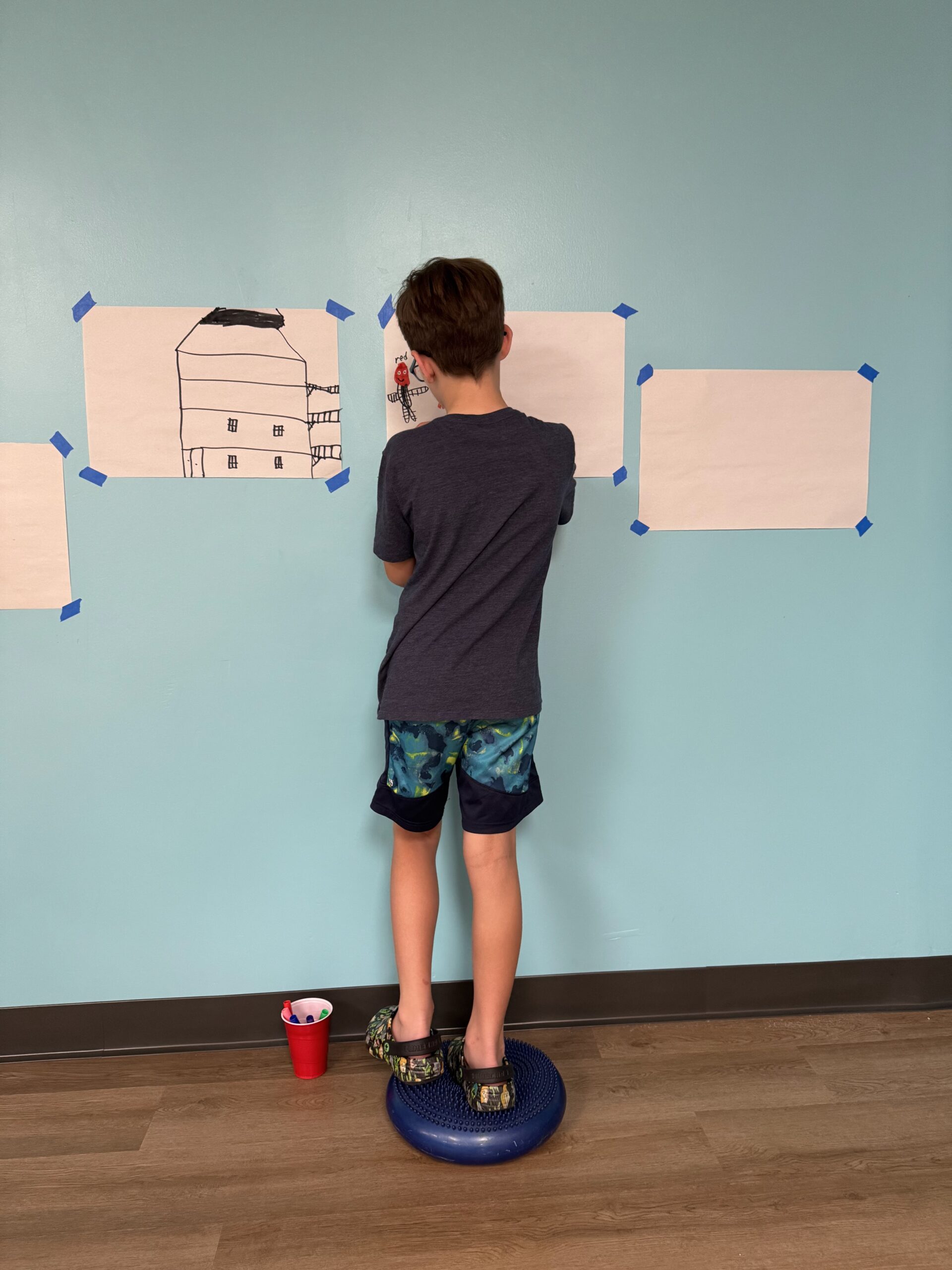
I’m thrilled to announce that the winner is:
Danielle Tabler
Fun and Function has sent an email for you to claim your balance boards!
Alisha Grogan is a licensed occupational therapist and founder of Your Kid’s Table. She has over 19 years experience with expertise in sensory processing and feeding development in babies, toddlers, and children. Alisha also has 3 boys of her own at home. Learn more about her here.
